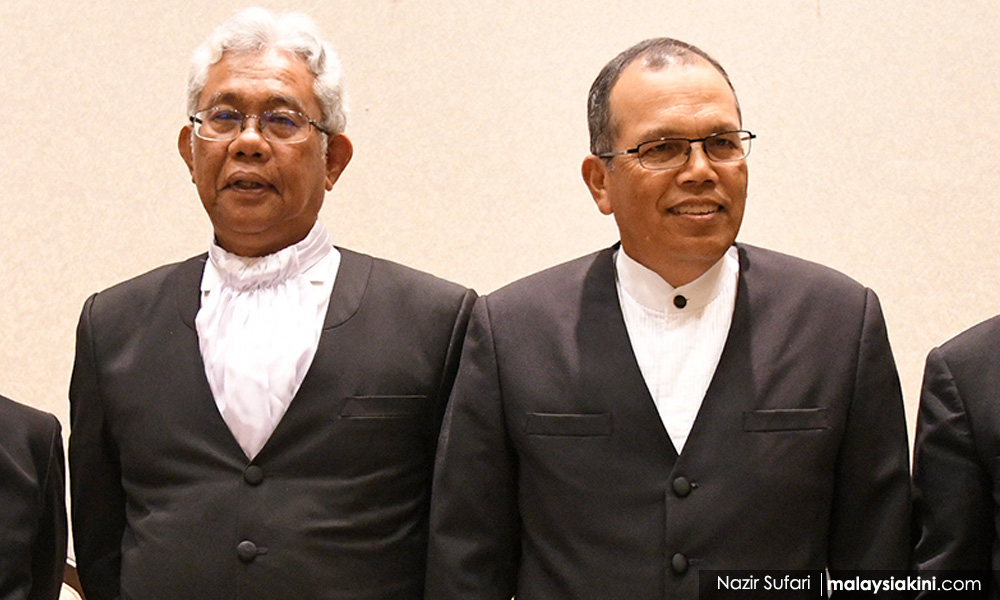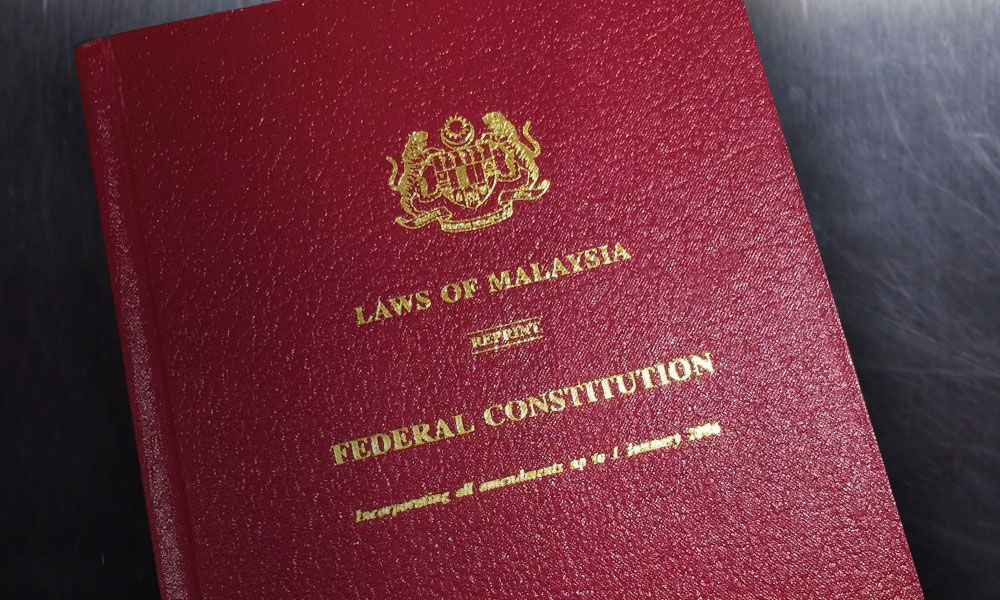

Mohamed Hanipa Maidin
Published: Jun 27, 2025 10:12 AM
Updated: 12:36 PM
COMMENT | One of the outstanding features of any legal system is its faithful adherence to precedents. Judges follow precedents in ensuring like cases are treated alike, or in Latin, it is described as similia similibus.
If we were to draw an analogy based on the aforesaid maxim, the current Chief Justice (CJ), Tengku Maimun Tuan Mat, who will be officially retiring on July 1, 2025, shouldn’t face any problem in having her tenure extended.
Is the extension of the CJ’s judicial tenure without any precedent? The answer is a resounding no.
After all, the tenures of her predecessors, such as Abdul Hamid Mohamad, Arifin Zakaria, and Richard Malanjum, were all extended. I would characterise such an extension as a good and sound precedent.
Yes, our legal history is also unfortunately mired in a bad precedent.
We may want to remember the controversial extension of the tenure of the then CJ Raus Sharif and the President of the Court of Appeal Zulkefli Ahmad Makinudin via their appointment as “additional judges” under Article 122(1A) in 2017.

Raus Sharif (right) and Zulkefli Ahmad Makinudin
It was controversial in that it completely ran afoul of the constitutional age limit imposed on them under Article 125(1) of our apex law.
Legitimate expectation
Anyway, a good precedent ought to be followed. Any lawyer who is familiar with judicial review must be exposed to a term known as legitimate expectation.
While the government is free to alter its policy, it is by no means free to ignore the existence of a legitimate expectation.
After all, legitimate expectation has been accepted in law as an interest worthy of protection; its existence, according to a constitutional expert, is “a relevant consideration which must be taken into consideration in the exercise of a discretion. It is placed on the scale and must be properly weighed”.
Anyway, this doctrine is deeply rooted in fairness.
There is an argument that there is an absence of explicit language allowing an extension for the CJ beyond the constitutional limit.
It also says that despite the fact that Article 125(1) of the Federal Constitution provides a mechanism for extending the tenure of Federal Court judges, it does not, however, explicitly allow for the extension of the CJ’s appointment.
It was controversial in that it completely ran afoul of the constitutional age limit imposed on them under Article 125(1) of our apex law.
Legitimate expectation
Anyway, a good precedent ought to be followed. Any lawyer who is familiar with judicial review must be exposed to a term known as legitimate expectation.
While the government is free to alter its policy, it is by no means free to ignore the existence of a legitimate expectation.
After all, legitimate expectation has been accepted in law as an interest worthy of protection; its existence, according to a constitutional expert, is “a relevant consideration which must be taken into consideration in the exercise of a discretion. It is placed on the scale and must be properly weighed”.
Anyway, this doctrine is deeply rooted in fairness.
There is an argument that there is an absence of explicit language allowing an extension for the CJ beyond the constitutional limit.
It also says that despite the fact that Article 125(1) of the Federal Constitution provides a mechanism for extending the tenure of Federal Court judges, it does not, however, explicitly allow for the extension of the CJ’s appointment.

With the greatest respect, this argument seems to suffer from several flaws.
Firstly, there is an express provision in the highest law of the land legalising an extension of tenure of Federal Court judges, which, ipso facto, must necessarily include the CJ and other heads of the judiciary, such as the Court of Appeal president and the chief judge of the High Court in Malaya.
Secondly, the six-month extension of the CJ’s tenure in Malaysia is not without any precedent, as I have already alluded to in the earlier paragraph.
While the government is not strictly bound to adhere to the said precedent, in my view, it ought to come up with compelling justifications if it opts to depart from such a tradition unless it does not care about the notion of good governance.
Why extend some but not others?
Thirdly, the argument seems to conveniently ignore the legality of the readily granted extension of the judicial tenures of Chief Judge of Malaya Hasnah Hashim and Chief Judge of Sabah and Sarawak Abdul Rahman Sebli. Is it not plainly discriminatory?
The consistency of the argument logically demands that it equally question the six-month extension accorded under Article 125(1) in favour of the aforesaid chief judge of Malaya and chief judge of Sabah and Sarawak.
Several former Malaysian Bar presidents have aptly warned the government that it may risk public confidence should it fail to promptly extend the tenure of the top judges, including the current CJ.

In addition to that, Tengku Maimun is also the chairperson of the Judicial Appointments Commission (JAC).
With the imminent retirement of nine Federal Court judges, including her, the threat of an institutional vacuum following their retirement should not be belittled by the government.
It goes without saying that the extension of Tengku Maimun’s tenure as CJ is definitely to ensure a smooth transition of the institutional leadership of JAC, especially in the judicial appointments of successor judges, considering the quorum requirement in appointing judges under Section 24(4) of the JAC Act 2009.
Above all, I dare say Tengku Maimun is one of our most excellent, intelligent and magnificent judges with impeccable integrity that Malaysia has ever had.
To conclude, the government, especially one that persistently promises to introduce and execute reforms, must get rid of any gloomy perception that it seeks to ruin the independence of the judiciary by, inter alia, treating the judges unequally.
It is relatively difficult to build a respected judiciary, but it is definitely easy to destroy the same.
MOHAMED HANIPA MAIDIN is a former deputy minister of law.
It shows more of UMNO's undue influence, practically Veto power in the Madani regime.
ReplyDeleteMuch of UMNO'S leadership is heavily against Maimun , mainly arising from the Najib SRC trial.